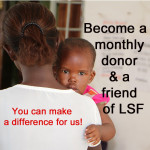Two years after the groundbreaking WHA resolution with the potential to improve care for 5 billion people worldwide, have we made strides to increase access to essential anaesthesia and surgical care? This topic was resently raised by the newspaper Huffington Post, under the headline: Anaesthesia, the ”invisible sister of the neglected stepchild of global health”, and the current crisis facing 5 billion people.
From the article:
On 22nd May 2015, a ground-breaking resolution “Strengthening emergency and essential surgical care and anaesthesia as a component of universal health coverage” was passed at the 68th World Health Assembly; a potential game-changer for the 5 billion people (of the world’s 7 billion people) without access to safe and affordable access to anaesthesia and surgical care when needed.
The real excitement surrounding the resolution stemmed from the fact that “the neglected stepchild” (surgery), “her forgotten sister” (anaesthesia), and the millions of neglected surgical patients, finally made it onto the global health stage and, from there, maybe even into the global consciousness. Never considered your access to surgery and anaesthesia before? You’re probably one of the lucky 2 billion who don’t have to. Yet shouldn’t access to lifesaving surgical treatment be a human right, for everyone?
The World Federation of Societies of Anaesthesiologists (WFSA) thinks so, as do the many non-profit organisations that have worked tirelessly since the resolution was passed on a Spring Geneva day in 2015. So where are we two years on?
Many actions have taken place on a local and national level across the world. The development of National Surgical, Obstetric and Anaesthesia Plans in Zambia, and more recently Tanzania, as well as in other countries across Africa, Asia, the Western Pacific and Latin America, are a great step forward in institutionalising surgery and anaesthesia in top level national health policy. This week the Tanzanian government announced plans to produce more skilled anaesthesiologists in the country in a fresh bid to avert maternal mortality among Tanzanian women.
“The government is now implementing its strategy to ensure every ward has one modern health facility. The task which is ahead now is to have experts who can work in these facilities and help in supervising several issues related to healthcare provision among Tanzanians,” Dr Mpoki Ulisubisya, the Permanent Secretary in the Ministry of Heath, explained on Monday. [http://allafrica.com/stories/201705160129.html]
The WFSA has worked to improve anaesthesia human resource capacity, an essential component of achieving universal health coverage (UHC), through anaesthesia training and education programmes in five continents. The organisation has also highlighted the essential leadership role of anaesthesiologists working alongside non-physician anaesthesia providers to achieve UHC, developed a tool for assessing anaesthesia capacity, updated the International Standards for a Safe Practice of Anaesthesia and will shortly publish a global survey of the anaesthesia workforce alongside an interactive online map.
“The crisis in anaesthesia is perhaps most apparent in terms of workforce. Safe anaesthesia requires a trained provider and yet across large parts of Sub-Saharan Africa, South-East Asia, and beyond, ratios of far less than 1 trained provider per 100,000 population are commonplace. In high income countries we are used to ratios of 20/100,000 or higher, and we experience very low mortality from anaesthesia, yet in low income countries we actually have examples of there being 1,000 times fewer trained providers and 1,000 times higher mortality rates. It’s wrong,” Julian Gore-Booth, WFSA Chief Executive, explained.
Despite these international efforts and the progress made, there is still a lack of funding for this area of global health. Each year more than 4 times as many people die from conditions that could be treated by surgery and anaesthesia than die from HIV, Tuberculosis and Malaria combined, yet surgery and anaesthesia remains massively underfunded. The need for the Resolution to remain high on the global health agenda is clear: 5 billion people depend on it.
